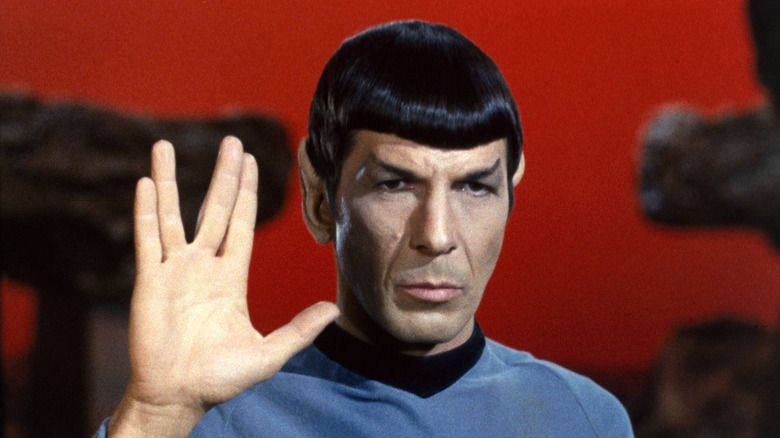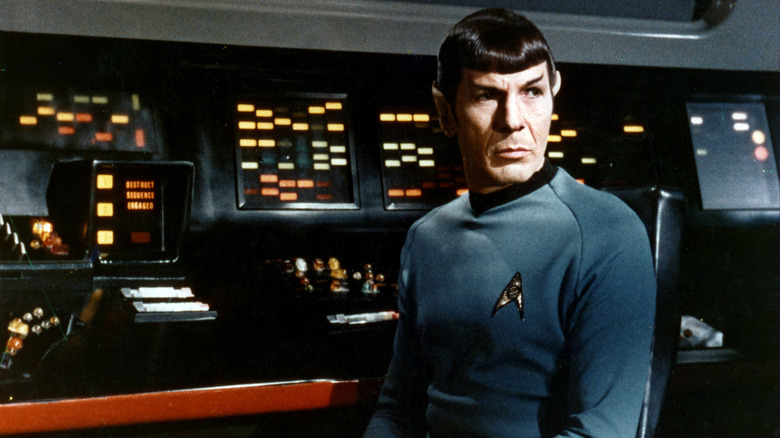Leonard Nimoy Was Ready To Quit Star Trek Before He'd Even Finished His First Episode
If you had to make a list of the top five people born to play an iconic character, there's a good chance that Leonard Nimoy would make that list. The actor brought Spock to life on "Star Trek" in a way that was uniquely his own. Tall, angular, and with an insane amount of presence, Nimoy introduced the world to Vulcans in such an impactful way that even people who have never seen a single "Star Trek" TV episode or movie could tell you that this fictional race of alien life has pointed ears and values logic over emotion. Heck, you might even be able to get every one of these non-fans to throw you a "live long and prosper" Vulcan salute.
You'd think that someone that was so successful at conveying an entirely new race of intelligent beings to the mass populace would find it easy to do. I know he made it look like playing a Vulcan was second nature. But it turns out that Nimoy struggled with it. We know about his "I Am Not Spock" era, where he opined in autobiography form how he didn't want to be known only for that one role, but apparently Nimoy's reservations with playing that character go back to the very beginning.
Playing a character without emotion brought the actor to literal tears
In Edward Gross & Mark A. Altman's book "The Fifty Year Mission — The First 25 Years," director Joseph Sargent recalled how unhappy Leonard Nimoy was while they were filming the very first episode they all shot together, "The Corbomite Maneuver":
"He said, 'How can I play a character without emotion? I don't know how to do that. I'm going to be on one note throughout the entire series.' I agreed with him and we worked like hell to give him some emotional context, but Gene [Roddenberry] said, 'No way, the very nature of this character's contribution is that he isn't an earthling. As a Vulcan, he is intellect over emotion.' Leonard was ready to quit because he didn't know how he was going to do it."
Nimoy is also quoted in this book saying that his way into Spock was when he realized that the Vulcan did have emotion, he just controlled that emotion. That gave the actor something to work with, although he did say he found himself randomly bursting into tears during meetings because "the emotions just had to come out somewhere."
Luckily for us, Nimoy didn't quit and we are left with one of the most iconic figures in pop culture storytelling ever created, thanks, in large part, to Nimoy's ability to make a seemingly emotionless character resonate as much, or more, than his wildly emotional onscreen counterparts. I mean, if you've seen "The Wrath of Kahn" and didn't choke up at, "I have been, and always shall be, your friend," do you even have a heart?

